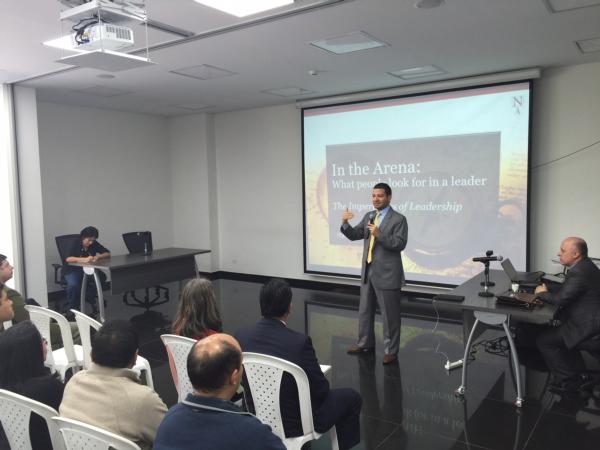It’s been said that big business loves big government, and this maxim certainly holds true in Latin America where Leadership Institute faculty member Italo Antoniotti is fighting to reform Guatemala’s outdated and destructive coffee and trade laws -- helping tens of thousand of indigenous Mayans in the process.
Antoniotti serves as the director of FEDECOCAGUA, the voluntary national association representing 23,000 small coffee producers in Guatemala, most of whom are native Mayans. They’re going up against the country’s biggest coffee producers and their government-guaranteed supermajority on the board of Guatemala’s state-sanctioned coffee trade association, ANACAFE.
The small producers represented by Antoniotti’s group are forced to obtain export licenses from the big coffee producers that dominate ANACAFE, and pay a mandatory (and economically inefficient) 1% export tax to fund the organization.
 This year, FEDECOCAGUA went to court to challenge the constitutionality of the export tax and the regulatory system that requires small coffee producers to, in effect, obtain the permission of their larger competitors for the freedom to sell their goods on the world market. With a tiny domestic coffee market, producers’ financial success or failure depends entirely on their freedom to export. With a 30% decline in Guatemala’s coffee production during the last decade, it’s economic crunch time for the country’s indigenous population of coffee producers who rely on selling their product to sustain their families and communities.
This year, FEDECOCAGUA went to court to challenge the constitutionality of the export tax and the regulatory system that requires small coffee producers to, in effect, obtain the permission of their larger competitors for the freedom to sell their goods on the world market. With a tiny domestic coffee market, producers’ financial success or failure depends entirely on their freedom to export. With a 30% decline in Guatemala’s coffee production during the last decade, it’s economic crunch time for the country’s indigenous population of coffee producers who rely on selling their product to sustain their families and communities.
Antoniotti, who began serving as a Leadership Institute volunteer expert faculty member in Latin America this year, argues that the free market, and not government mandates, should prevail. Industry trade associations should be voluntary and not government-mandated, and the export tax should be abolished as economists universally recognize the inherently destructive nature of export taxes. (Article 1, Section 9 of the United States Constitution explicitly prohibits such taxes.)
In many Central American countries people have been forced to choose between socialist policies on the one side, the crony capitalist policies on the other. The solution, as documented extensively by the Heritage Foundation in their Index of Economic Freedom, is to advance policies that give neither government nor government-favored businesses an unfair advantage in the marketplace. Reasonable and predictable taxes, free trade, freedom from corruption, access to a fair judicial system, a low regulatory burden and free labor markets are the keys to economic success and prosperity.
If Antoniotti and his group of 23,000 independent coffee producers succeed, one Central American country will have taken a significant step in the right direction.